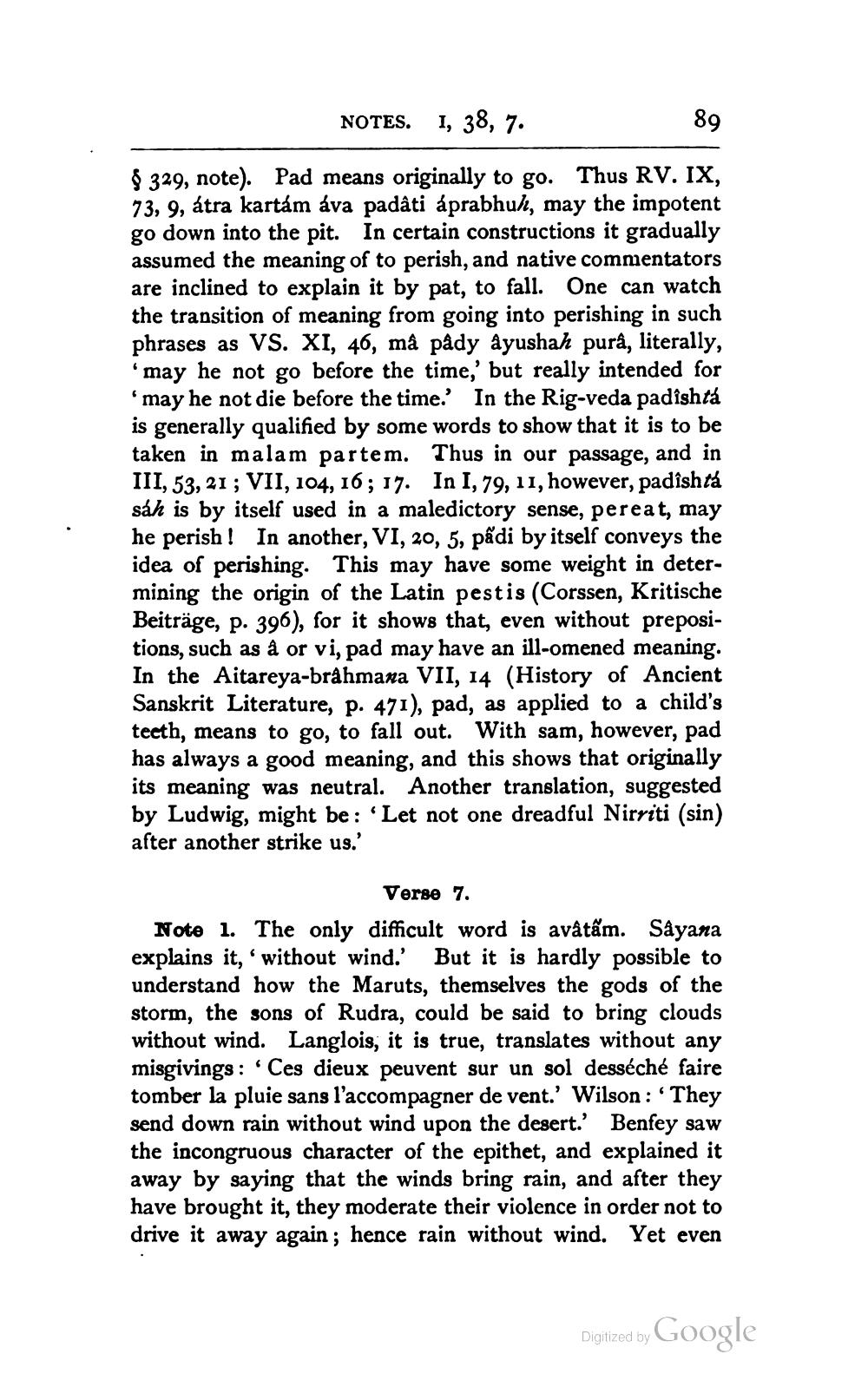________________
NOTES. I, 38, 7.
89
$ 329, note). Pad means originally to go. Thus RV. IX, 73, 9, átra kartám áva padâti áprabhuh, may the impotent go down into the pit. In certain constructions it gradually assumed the meaning of to perish, and native commentators are inclined to explain it by pat, to fall. One can watch the transition of meaning from going into perishing in such phrases as VS. XI, 46, må pådy ayushah pura, literally, 'may he not go before the time, but really intended for 'may he not die before the time. In the Rig-veda padishtá is generally qualified by some words to show that it is to be taken in malam partem. Thus in our passage, and in III, 53,21; VII, 104, 16; 17. In I, 79, 11, however, padishta sáh is by itself used in a maledictory sense, pereat, may he perish! In another, VI, 20, 5, pâdi by itself conveys the idea of perishing. This may have some weight in determining the origin of the Latin pestis (Corssen, Kritische Beiträge, p. 396), for it shows that, even without prepositions, such as à or vi, pad may have an ill-omened meaning. In the Aitareya-brahmana VII, 14 (History of Ancient Sanskrit Literature, p. 471), pad, as applied to a child's teeth, means to go, to fall out. With sam, however, pad has always a good meaning, and this shows that originally its meaning was neutral. Another translation, suggested by Ludwig, might be: 'Let not one dreadful Nirriti (sin) after another strike us.'
Verso 7. Note 1. The only difficult word is avâtấm. Såyana explains it, without wind.' But it is hardly possible to understand how the Maruts, themselves the gods of the storm, the sons of Rudra, could be said to bring clouds without wind. Langlois, it is true, translates without any misgivings : Ces dieux peuvent sur un sol desséché faire tomber la pluie sans l'accompagner de vent.' Wilson: 'They send down rain without wind upon the desert.' Benfey saw the incongruous character of the epithet, and explained it away by saying that the winds bring rain, and after they have brought it, they moderate their violence in order not to drive it away again ; hence rain without wind. Yet even
Digitized by
Digized by Google




